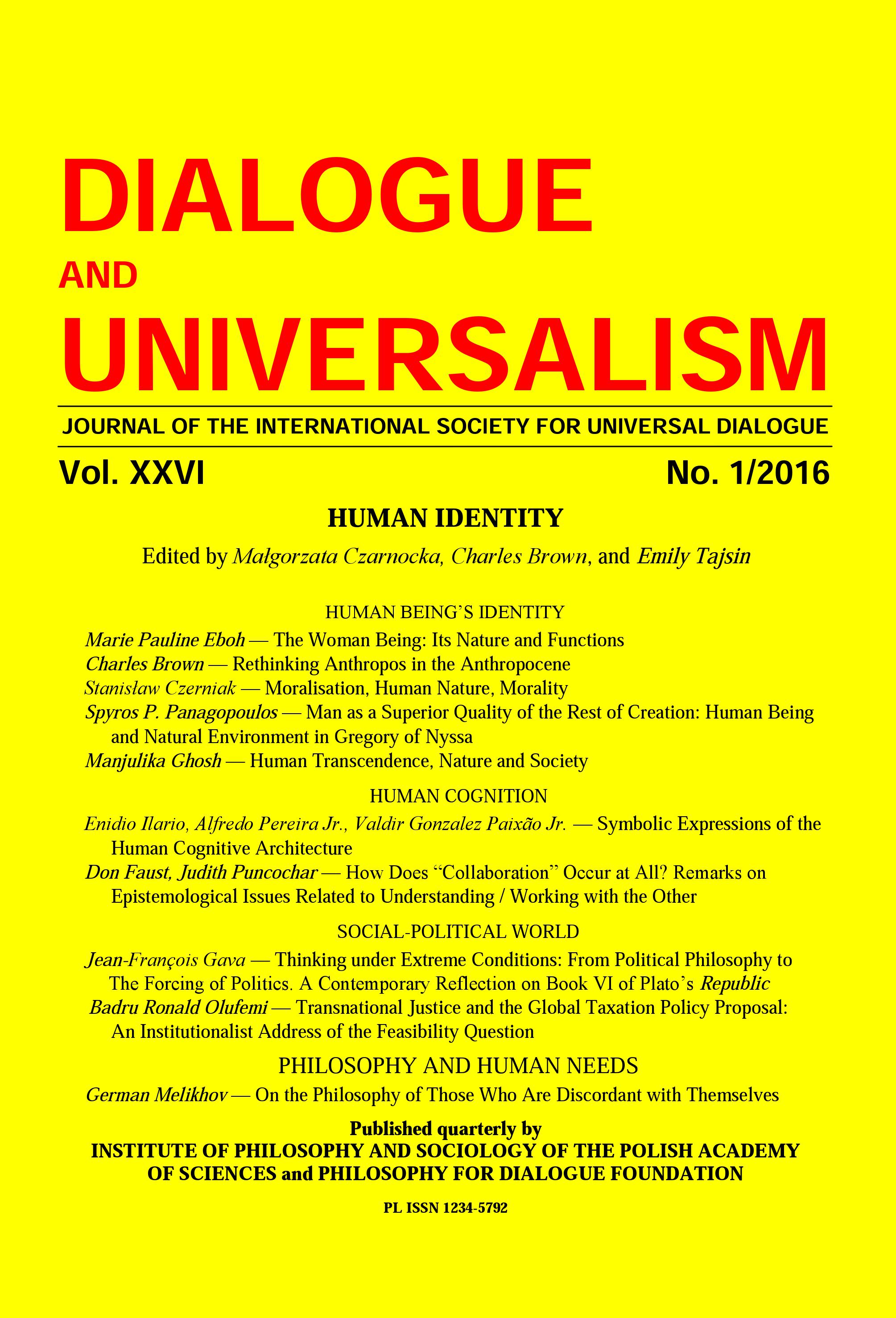RETHINKING ANTHROPOS IN THE ANTHROPOCENE
RETHINKING ANTHROPOS IN THE ANTHROPOCENE
Author(s): Charles BrownSubject(s): Philosophy
Published by: Instytut Filozofii i Socjologii Polskiej Akademii Nauk
Summary/Abstract: A growing number of geologists, geophysicists, and other Earth scientists now claim that human caused changes in the chemistry of the atmosphere, oceans, and land are so pervasive as to constitute a new geological epoch characterized by humanity’s impact on the planet. They argue that these changes are so profound that future geologists will easily recognize a discernible boundary in the stratigraphy of rock separating this new epoch from the previous geological epoch, i.e., the Holocene. They propose to name this new geological epoch the “Anthropocene,” a term meaning the age of man. Common to this view is the claim that humans are now the ecologically dominant force on Earth.This paper will compare the understanding of human self-identity developed by the defenders of the Anthropocene discourse with the understanding of human self-identity developed by radical ecologists. The defenders of the Anthropocene Discourse argue that human beings must accept a new understanding of human self-identity as an emerg-ing elemental force of nature and as master of the planet while radical ecologists argue that human beings must cultivate a conception of human self-identity as integral to nature. Radical ecologists argue that human self-understanding has traditionally been constructed by defining the realm of the human through the denial of our embodiment, our animality, and our presence in the natural order of things. These forms of self-understanding and self-expression now result in the failure to envision and promote thriving and sustainable lifestyles and the consequent environmental tragedies that un-dermine the natural systems making possible good and healthy lives for all species.This paper will conclude by arguing that only an ecologically and dialogically in-formed conception of human self-identity can provide an adequate point of departure for an ecologically benign form of human dwelling on this planet.
Journal: Dialogue and Universalism
- Issue Year: 2016
- Issue No: 1
- Page Range: 31-38
- Page Count: 8
- Language: English
- Content File-PDF

